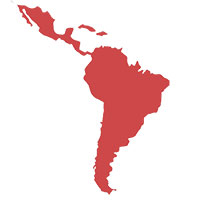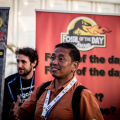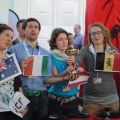Australia Wins Third Fossil
Sydney Pead | December 5, 2014.
Australia won the dishonourable prize for shirking responsibility for their part in the collective damage to the planet by refusing to contribute to the Green Climate Fund (GCF). The statement was announced by Minister Foreign Affairs Julie Bishop yesterday. Instead, they are trying to pass off existing foreign aid deployed in the South Pacific islands as “climate finance” and as a justification for skimping on additional climate finance.
Not only is Australia letting down the rest of the world by shafting the GCF, back home, they have also proposed cuts to their federal aid budget by AU$7.6 billion over the next five years. Adding insult to injury was UNEP’s announcement today that the predicted adaptation costs are set to triple from the original US$70-100 billion per year. Yet Australia continues to disregard their part of the financial burden of climate change.
In celebration of Business and Industry Day, known as BINGO Day, a special honour was awarded to Royal Dutch Shell for sneaking corporate interests into the conference with clever marketing tactics.
As well as general lobbying to protect their bottom line, Shell is hosting a side event about carbon capture and storage technology (CCS) on Monday. CCS is a process that raises eyebrows in the scientific community and hasn’t been proven as viable. In the run up to the event, it has been sneakily renamed to garner enthusiasm and green-wash the questionable nature of the event but this hasn’t gone unnoticed by those at COP20.
On a high note, the coveted Ray of the Day award went to the Marshall Islands for getting real with Intended Nationally Determined Contributions (INDC) commitment periods. The island nation proposed five-year commitment periods to future mitigation agreements. These shorter periods would allow for up-scaling ambition for future targets frequently and evolving climate science.
Fossil of the Day is an award given out by the Climate Action Network to the country that has done the least to progress the negotiations.













comment